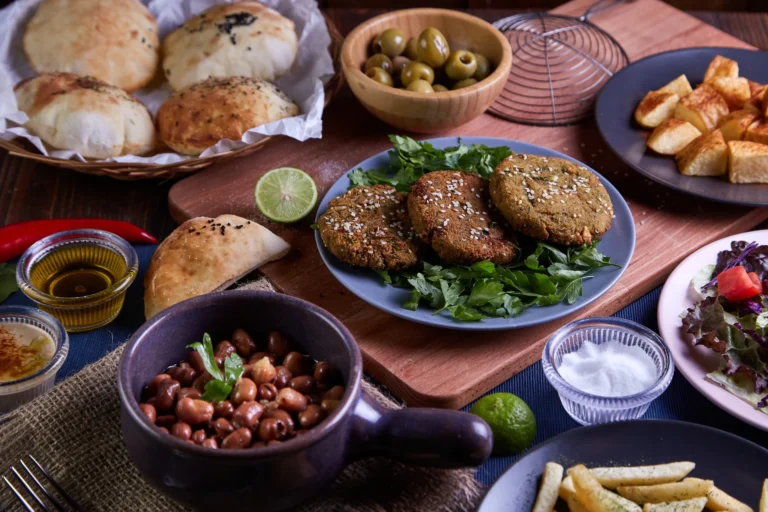Introduction: Egypt’s culinary heritage and traditional cuisine
Egypt is a country steeped in history, culture, and traditions, and its cuisine is no exception. The country’s culinary heritage is a rich blend of ancient and modern influences, reflecting the diverse cultures and civilizations that have shaped Egypt over the centuries. Egyptian cuisine is characterized by an abundance of herbs and spices, as well as a wide variety of fruits, vegetables, and grains, making it both flavorful and healthy.
Egyptian cuisine: A cultural melting pot of ancient and modern influences
Egyptian cuisine is a cultural melting pot of ancient and modern influences, reflecting the country’s rich history and diverse cultural traditions. The cuisine draws upon the culinary traditions of ancient Egypt, as well as the influences of Arab, African, and Mediterranean cultures. As a result, Egyptian cuisine is characterized by a variety of flavors, textures, and ingredients, ranging from savory stews and meat dishes to sweet pastries and desserts.
Celebrations in Egypt: A time for traditional food and family gatherings
Celebrations are an important aspect of Egyptian culture, and they are often marked by traditional food and family gatherings. From weddings and birthdays to religious holidays and national festivals, celebrations in Egypt are always accompanied by delicious food and warm hospitality. Traditional dishes like stuffed grape leaves, koshari (a mix of rice, macaroni, and lentils), and molokhia (a stew made with greens and meat) are often served during these occasions.
Religious holidays: A showcase of Egypt’s diverse food traditions
Religious holidays are an important part of Egyptian culture, and they are often marked by traditional food and festivities. From Ramadan to Coptic Christmas, these holidays provide an opportunity for families and friends to come together and enjoy delicious food and drinks. These celebrations are a showcase of Egypt’s diverse food traditions, with each holiday having its own unique set of dishes and customs.
Ramadan: The month of fasting and feasting in Egypt
Ramadan is a month-long religious observance that involves fasting from dawn until dusk. It is also a time for feasting and celebrating with family and friends. The traditional Ramadan meal is called iftar, and it is typically a lavish spread of foods that includes dates, soups, salads, and meat dishes. Traditional desserts like kunafa (a pastry made with sweet cheese and syrup) and baklava are also served during Ramadan.
Eid al-Fitr: A sweet celebration with traditional sweets and pastries
Eid al-Fitr is a three-day festival that marks the end of Ramadan. It is a time for celebration and feasting, with traditional sweets and pastries taking center stage. Some of the most popular Eid sweets include maamoul (a pastry filled with dates or nuts), kahk (a buttery cookie topped with powdered sugar), and basbousa (a semolina cake soaked in syrup).
Coptic Christmas: A feast of meat, bread, and sweet treats
Coptic Christmas is celebrated on January 7th and is a time for family gatherings and feasting. Traditional dishes like roasted meat, bread, and sweet treats like kahk are served during this holiday. One of the most popular Coptic Christmas dishes is fatta, which is made with layers of bread, rice, and meat, topped with a garlic and vinegar sauce.
Conclusion: The importance of preserving Egypt’s culinary traditions
Egypt’s culinary traditions are an important part of the country’s cultural heritage, reflecting the rich history and diverse cultural influences that have shaped Egypt over the centuries. As such, it is important to preserve and promote these traditions, both domestically and internationally. By doing so, we can ensure that future generations will continue to enjoy the delicious flavors and unique cultural traditions of Egyptian cuisine.

